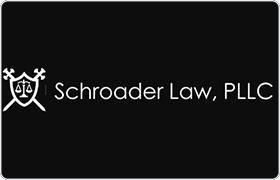Lakebay Juvenile Law Lawyer, Washington
Sponsored Law Firm
-
 x
x

Click For More Info:
-
Schroader Law, PLLC
1105 Tacoma Ave S Tacoma, WA 98402» view mapCriminal Defense Exceptional Legal Service
Schroader Law, PLLC offers superior service from start to finish. Attorney Schroader is a knowledgeable lawyer offering comprehensive legal advice with realistic expectations.
800-916-9671
Kathryn R Portteus
Juvenile Law, Wills, Estate Planning, Estate
Status: In Good Standing Licensed: 27 Years
Emily Marie Howlett
Family Law, Juvenile Law, Indians & Native Populations, Criminal
Status: In Good Standing Licensed: 13 Years
Stephen Dennis Greer
Family Law, Juvenile Law, Life & Health, Legal Malpractice
Status: In Good Standing Licensed: 37 Years
Kathryn Kaminoff Weymiller
Juvenile Law, Other, State Government, Government
Status: In Good Standing Licensed: 30 Years
 Dennis Schroader Tacoma, WA
Dennis Schroader Tacoma, WA Practice AreasExpertise
Practice AreasExpertise
